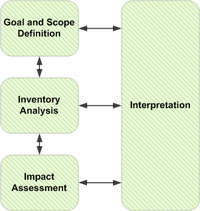
Photo from wikipedia
Marginal fisher analysis (MFA) is a dimensionality reduction method based on a graph embedding framework. In contrast to traditional linear discriminant analysis (LDA), which requires the data to follow a… Click to show full abstract
Marginal fisher analysis (MFA) is a dimensionality reduction method based on a graph embedding framework. In contrast to traditional linear discriminant analysis (LDA), which requires the data to follow a Gaussian distribution, MFA is suitable for non-Gaussian data, and it has better pattern classification ability. However, MFA has the small-sample-size (SSS) problem. This paper aims to solve the small-sample-size problem while increasing the classification performance of MFA. Based on a matrix function dimensionality reduction framework, the criterion of the MFA method is reconstructed by using the polynomials matrix function transformation, and then a new MFA method is proposed, named PMFA (polynomial marginal fisher analysis). The major contributions of the proposed PMFA method are that it solves the small-sample-size problem of MFA, and it can enlarge the distance between marginal sample points of inter-class, so that it can get better pattern classification performance. Experiments on the public face datasets show that PMFA can get a better classification ability than MFA and its improved methods.
Journal Title: IEEE Access
Year Published: 2022
Link to full text (if available)
Share on Social Media: Sign Up to like & get
recommendations!